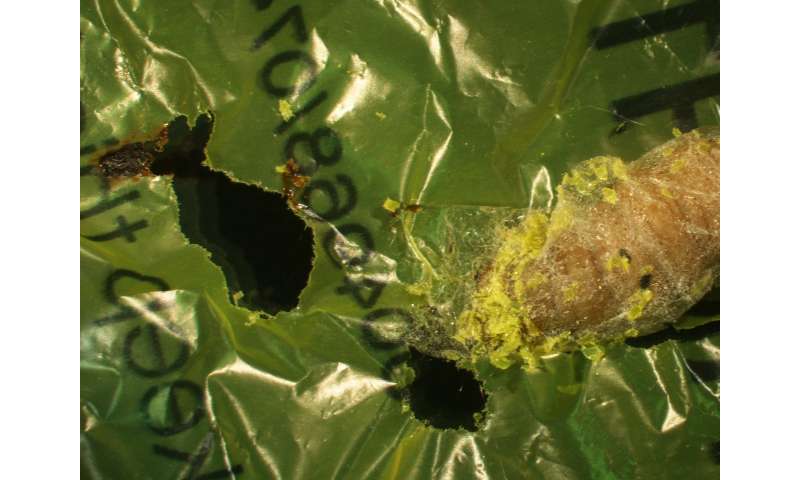Best of Last Week – Caterpillars eating plastic, math describings time travel and testosterone's impact on male behavior

(ScienceX)—It was an interesting week for earth sciences as a team from Spain and the U.K. reported on a caterpillar that was found to eat shopping bags, suggesting a biodegradable solution to plastic pollution—the wax worm, larva of the greater wax moth was found by accident to be a possible means for reducing landfill waste. Also, a professor at the University of Central Florida invented a way to trigger artificial photosynthesis to clean air—he reduced two forms of carbon dioxide to formate and formamides.
In other news, data from NASA's Cassini mission suggested a new picture of the sun's interaction with the galaxy, calling into question an alternate view of the solar magnetic fields trailing behind the sun. The new data was used in combination with older data from the Voyager mission. Also, a mathematician at the University of British Columbia used math to investigate the possibility of time travel—Ben Tippett came up with a formula that described a way to achieve time travel. Also, a team of researchers in the U.S. announced that they had designed 2-D materials that conduct electricity at almost the speed of light for possible use in quantum computers. And a team with the University of Melbourne released world-first images of electric currents in graphene, offering a new way to learn how currents flow in the material. And a team from the U.S. and Australia found evidence of humans in America 115,000 years earlier than thought—prior to the discovery, the earliest evidence of humans was just 15,000 years ago.
Also, a team from Portugal and Australia found that gut bacteria tell the brain what animals should eat, though how they do so is still a mystery. In somewhat related news, a team at the University of Connecticut found that active ingredients in both hot peppers and cannabis calm the gut's immune system, further suggesting a possible link between the gut, the brain and other systems.
And finally, if you are male, or have wondered about the sometimes erratic behavior of males in your life, you may be interested in a study conducted by a team with members from Caltech, the Wharton School, Western University, and ZRT Laboratory—they found that testosterone makes men less likely to question their impulses, which might explain some hotheaded behaviors.
© 2017 ScienceX